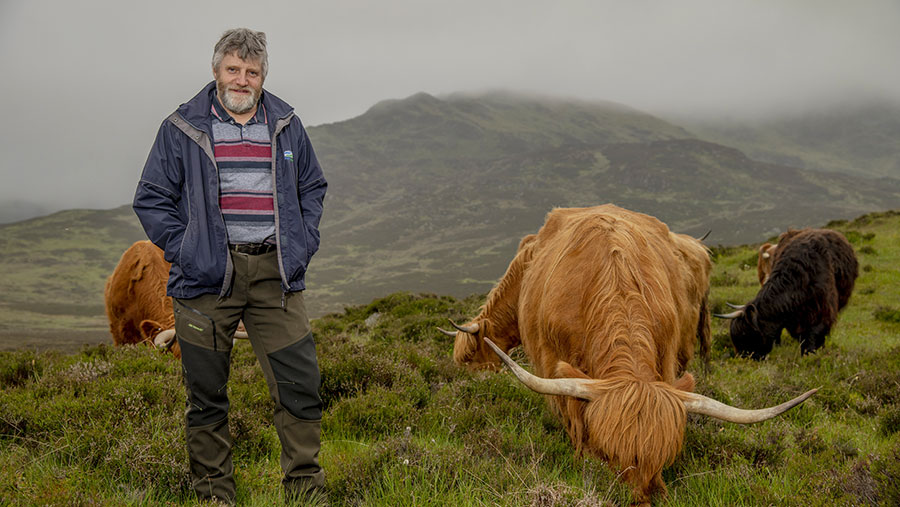NFUS president launches blistering attack on farm policy
 Martin Kennedy © NFU Scotland
Martin Kennedy © NFU Scotland NFU Scotland president Martin Kennedy has launched a withering critique of the UK government’s plans for future farming policy, in a fierce attack on Boris Johnson’s administration.
In his first address to NFU Scotland’s conference since he was elected as president in February 2021, Mr Kennedy told policymakers to “take their heads out of the sand”, listen hard and deliver viable support for the farming industry, which has never been under such intense pressure.
See also: NFU Scotland seeks urgent action on future farm policy
Mr Kennedy reeled off a long list of challenges currently facing Scotland’s active farmers and crofters, including “all-time-high” input costs, labour shortages, imbalanced supply chains, unreciprocated trade deals and ongoing uncertainty about future policy and support.
The sector was also dealing with issues such as slurry storage rules, land reform, rural crime and species management, as well as problems with utility companies, access rights, plastics, carbon credits and large-scale forestry expansion.
Mr Kennedy warned of the “unintended consequences” of wrong decisions being made by people in the the UK and Scottish governments who have “no real understanding” of the consequences of their actions on Scottish farmers, crofters, the environment and rural communities.
Damaging trade deals
The UK government had agreed trade deals with large agricultural exporting countries, he said, without consideration of the UK farming industry’s concerns and the “long-term detrimental effect on domestic food production”.
The problems of Brexit were “far from over”, he added, with “continuous hurdles on border checks and labour shortages”.
All farming sectors are facing real challenges, warned Mr Kennedy. The pig sector, for instance, had “endured serious losses”, including the loss of the Chinese market, labour shortages, penalties with pigs going out of spec and a lack of supermarket support.
However, he described the takeover of Scotland’s biggest pork processing plant at Brechin by Browns Food Group as a positive development, as the company is a “great supporter of using local product”.
Labour concerns
Labour shortages continue to be one of the union’s biggest concerns, Mr Kennedy said. The Home Office’s decision to expand the Seasonal Workers Pilot to 30,000 visas (with a provision for an extra 10,000) was “still not enough”.
“Despite there being ample evidence of farmers having already decided not to grow some crop, there is a real reluctance from the Home Office, which seems to be burying its head in the sand to understand it is undermining its own economy,” he added.
Mr Kennedy said he raised the problem of a shortage of full-time farmworkers with Mr Johnson at No 10 Downing Street and was told, “you need to pay people more”. But Mr Kennedy said it was absolutely not a cheap labour issue, as the level of pay in the dairy or the wider processing industry was “equal to, if not exceeding, many other sectors”.
He added: “This lack of understanding of the UK government, and particularly the Home Office, is incredible”.
Mr Kennedy said governments need to increase their efforts to encourage more young people in schools and colleges to consider careers in agriculture.
ELM scheme ‘car crash’
Mr Kennedy later described Defra’s plans for future agricultural policy in England under its Environmental Land Management programme as a “car crash”. He fears a lack of enthusiasm for the schemes among English farmers will give the Treasury an excuse to divert the funding elsewhere.
Speaking earlier at the conference, which is being held online again this year due to the ongoing Covid-19 pandemic, NFUS chief executive Scott Walker accused the UK government of giving “warm words, with little action”. For example, he said, trade deals were being done that “give access to our markets that provide little or no reciprocal deal for farmers”.
